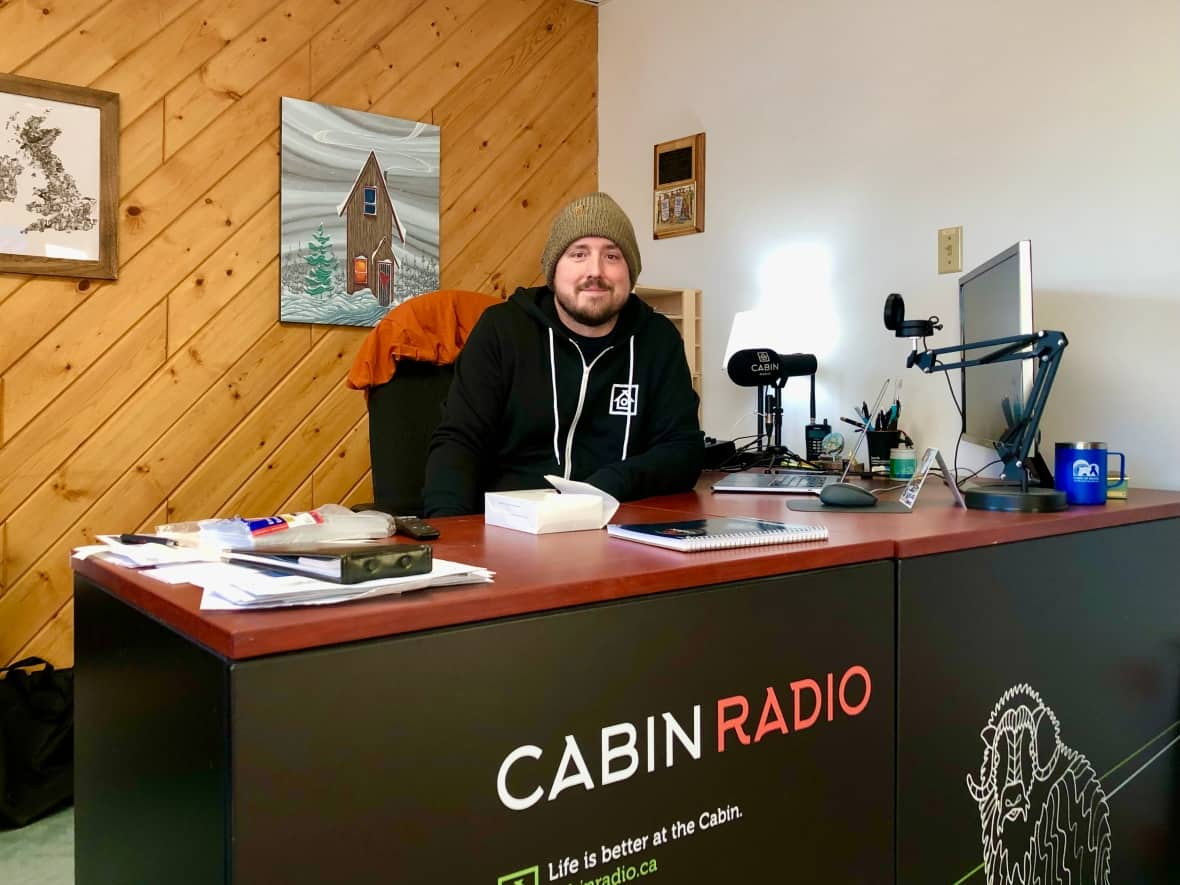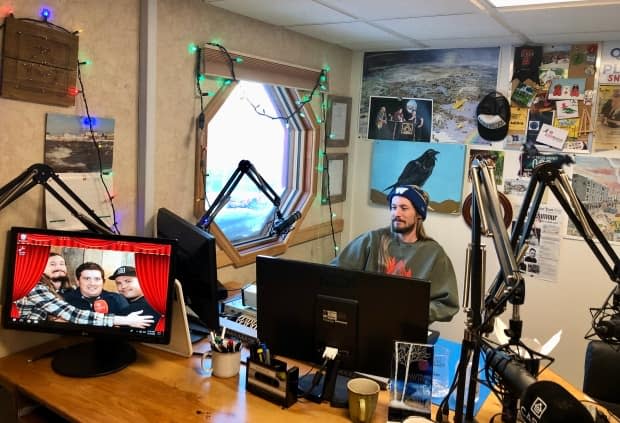N.W.T.'s Cabin Radio decries 'incredibly unfair outcome' after FM licence application blocked by CRTC

Yellowknife's Cabin Radio won't be airing on terrestrial radio anytime soon.
In a decision released Wednesday, the Canadian Radio-television and Telecommunications Commission (CRTC) concluded that N.W.T.'s capital city can't support another commercial radio station, so it will "return" Cabin Radio's application for an FM broadcasting licence.
Ollie Williams, the editor and a part-owner of Cabin Radio, called the decision "an incredibly unfair outcome."
"The CRTC had a chance here to ensure that there was more than one commercial FM newsroom in Yellowknife, and a locally-owned commercial FM newsroom, which does not exist here," said Williams.
"The CRTC has decided against that, and I think that's a shame."
3.5 year wait for decision
Cabin Radio is a news website and an online radio station that broadcasts 24 hours a day, seven days a week.
Williams and four other Yellowknifers started the company in 2017, with the goal of eventually bringing its unique flavour of hyper-local news and entertainment to the FM airwaves.
Cabin applied for a commercial FM licence in August of 2019. It took three and a half years for the commission to move on its application.
Two organizations had expressed opposition to another commercial radio station in Yellowknife in interventions to the CRTC: B.C.-based Vista Radio, which owns True North FM in Yellowknife, and the Native Communications Society of the NWT, which runs Indigenous- and English-language programming on CKLB Radio.
Both argued another FM radio station would eat into valuable ad revenue in Yellowknife's small market.

The CRTC's decision says commercial radio in Canada has experienced two years of decline, and faces added pressure from online options, "making it a buyer's market for advertisers."
It says the Yellowknife market is underperforming compared with the Whitehorse and Iqaluit markets, and that the only commercial station in the city — True North FM — had declining revenues in the five years before the pandemic.
The CRTC says it's unlikely to accept applications for a new commercial FM radio station in Yellowknife for another two years.
Two commissioners gave dissenting opinions.
Commissioner Claire Anderson's dissent says the CRTC relied heavily on territorial data, rather than Yellowknife data, and put "significant weight" on the financial performance of True North FM.
She also points out that the commission didn't consider Cabin Radio's application in its market assessment: this process only considered the True North FM and CKLB.
Williams said the CRTC entered that process without even opening Cabin's application.
"Obviously, we would contend that that is not the world's greatest process," he said.
Commissioner Joanne T. Levy, in her dissent, says True North FM can't block competition indefinitely by citing unprofitability.
"Diversity of voices should be supported as much in a somewhat remote Northern community as anywhere else in Canada," she writes.
Neither the CRTC nor Vista Radio immediately responded to CBC's request for an interview.
Yellowknife 'isn't really understood' by CRTC, says MLA
Katrina Nokleby, the MLA for Great Slave in Yellowknife, said she was surprised by the CRTC's decision.
"It's no secret that the media and the Assembly have had its ups and downs over the years," said Nokleby, who sometimes advertises on Cabin's website.
"But I did hear a lot from many people that were probably more knowledgeable than myself that [Cabin] really filled a void that was missing in Yellowknife."
She takes the decision as a sign that Yellowknife's "dynamic or the way that we function isn't really understood" by the national telecom regulator.
Williams said Cabin is exploring its options, and hasn't given up on FM radio just yet.
"Regardless of how things end with the CRTC, we've got a big role to play in Yellowknife, and in the Northwest Territories, and we're not going to stop playing that, we're just going to try and play it harder," said Williams.
"Getting an FM licence — we think it would make a crucial difference to our ability to inform, and to entertain, to educate in Yellowknife, but it's not the only way."


